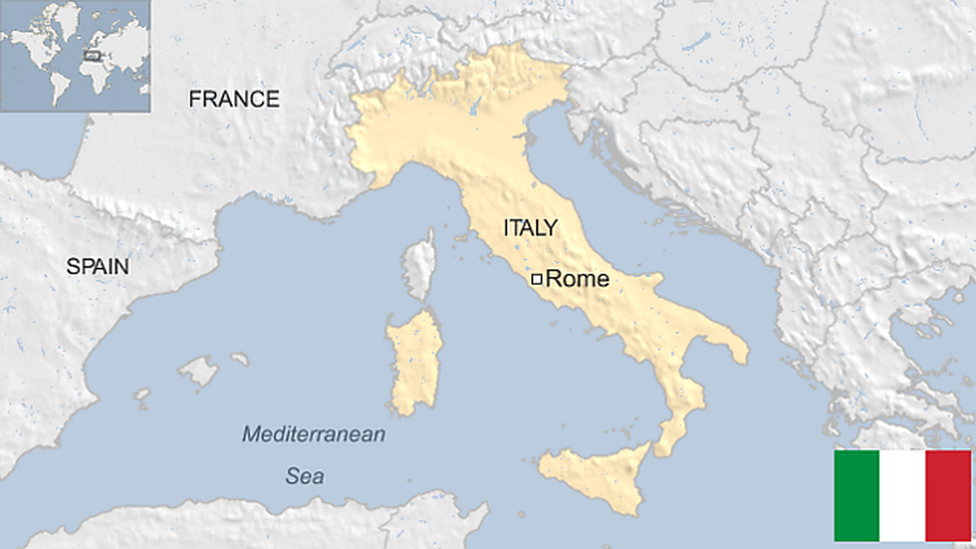Optimism greets Italy's grand coalition
- Published
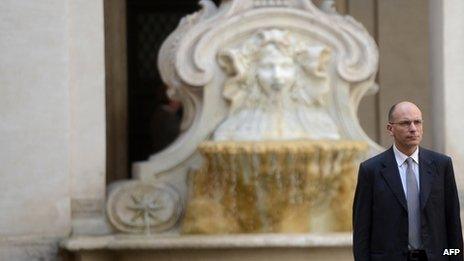
Enrico Letta has no choice but to force political enemies to govern together
Enrico Letta's new "grand coalition" government - a hybrid mixture of party bigwigs, technical experts, and an unusually high number of women ministers - has been sworn in at Rome's presidential palace and is expected to get an early confidence vote in parliament.
A new wave of political optimism reigns, after dire predictions of the possible institutional and economic collapse of the eurozone's third largest economy.
With their backs to the wall, the seriously fractured Democratic Party (PD), and Silvio Berlusconi's People of Freedom Party (PDL) decided to bury their ideological differences and will now try to co-operate in a last-ditch attempt to remedy a social and economic crisis that threatened to get out of hand after an indecisive February election.
The history of the very few "grand coalition" experiments in Italy since World War II does not inspire hope for long-term success.
The so-called historic compromise between Christian Democrats and Communists planned in 1978 foundered not only because of the dramatic kidnapping and subsequent murder by Red Brigades terrorists of the former Christian Democrat leader Aldo Moro, but also because of long maintained Cold War vetoes by the United States against letting communists into government in Rome.
But Italy's former ruling parties which monopolised power in Rome for many decades after the end of WWII have long since disappeared.
Silvio Berlusconi's PDL and Enrico Letta's PD may be the heirs to Christian Democracy and Marxist ideology, but as in many other European democracies, centre-right and centre-left social democrat party policies now tend to converge.
It is often difficult to distinguish between them.
First black minister
Sunday's Italian press lauds the fact that the new ministers' average age is only 53, in what has come to be seen by voters as a tired gerontocracy.
They like the fact that there are seven women among the 21 new ministers, including Emma Bonino, former European human rights commissioner, and one of the founders of the small but influential Radical Party.
They approve of the new minister for equal opportunities, and for sport, Josefa Idem, an Olympic gold medallist born in Germany but now a naturalised Italian.
They mostly also like the appointment of Italy's first black minister, Cecile Kyenge, an Italian citizen and a doctor, born in the Democratic Republic of Congo, who will look after the interests of Italy's migrant population, now five million and growing.
The Italian state does not currently grant automatic citizenship to the children of immigrants born here.
Only the anti-immigrant Northern League party has had unkind words of criticism about Ms Kyenge's surprise appointment.
The unknown factor in the current Italian political scene is the future of Beppe Grillo's Five Star Movement, now the main parliamentary opposition to the new coalition government.
Mr Grillo has been unrelenting in his raucous denunciation of Mr Letta's statesman-like efforts to put Italy on a new political track.
He has compared the "grand coalition" to piglets struggling to feed from a sow.
Many of Beppe Grillo's supporters are disillusioned former PD members. If Mr Letta does manage to put into operation his plans for getting Italy back into greater productivity and growth, the Beppe Grillo populist protest movement could fade away as quickly as it has come into prominence.
- Published13 February 2014
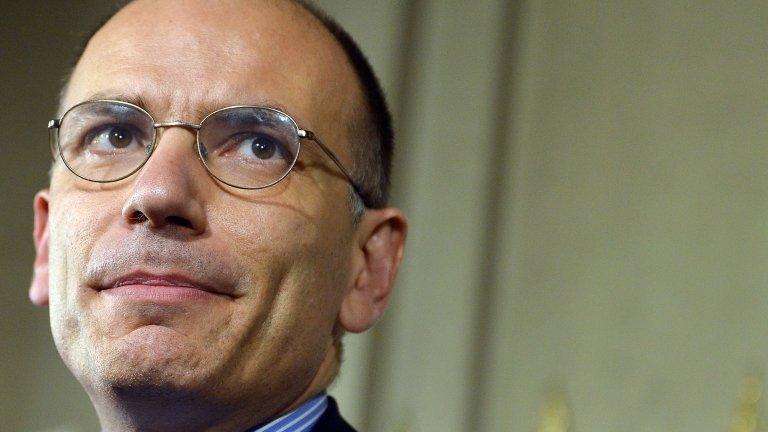
- Published27 April 2013
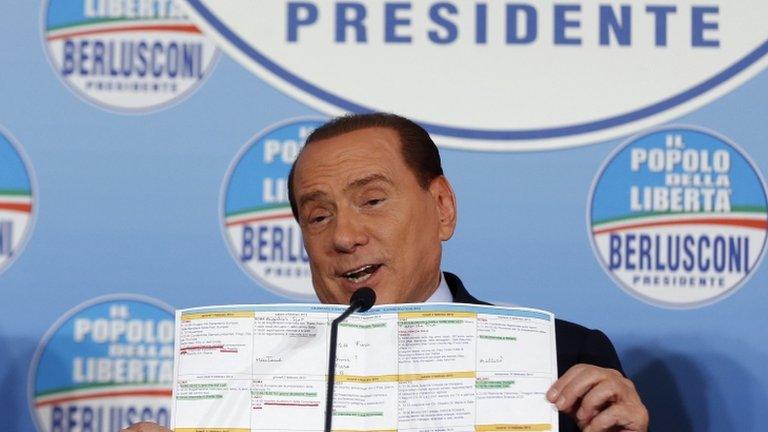
- Published23 April 2013
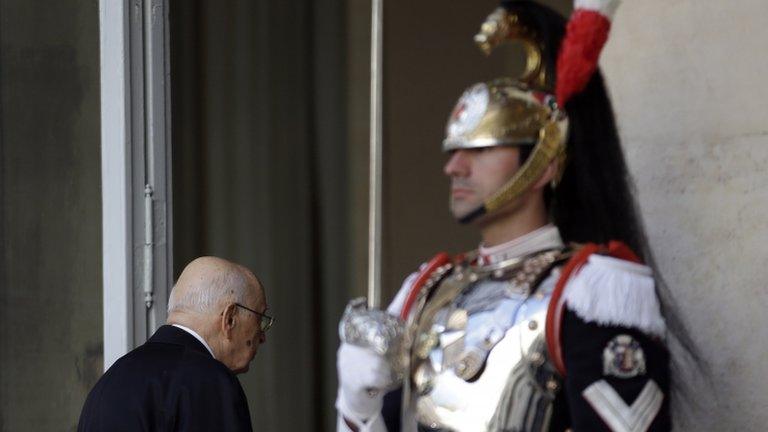
- Published4 October 2023
